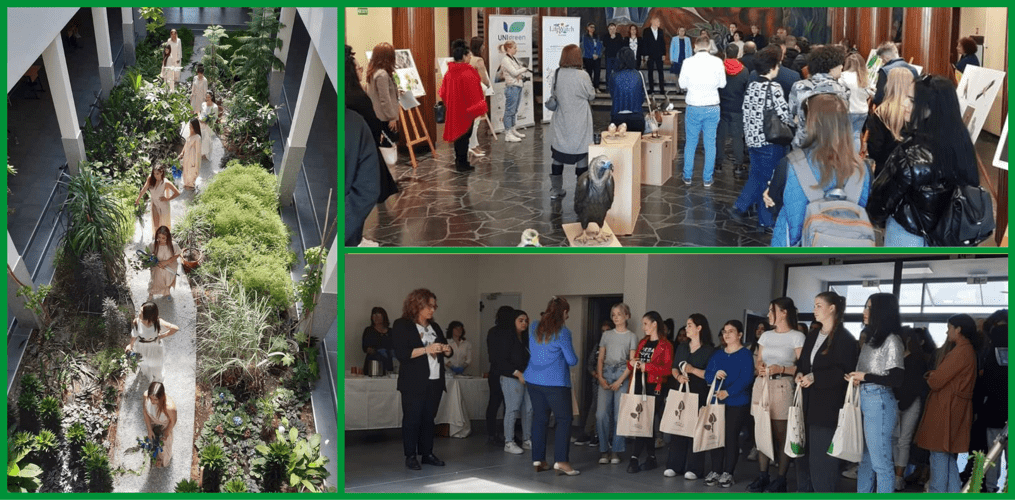
The Agricultural University-Plovdiv (AUP, Coordinator of LifeWatch Bulgaria) and the Faculty of Plant Protection and Agroecology in partnership with LifeWatch ERIC; the Academy of Music, Dance and Fine Arts “Prof. Asen Diamandiev” – Plovdiv (AMTII); the student councils at the AUP and AMTII; the Plovdiv Regional Inspectorate of Environment and Water (RIEW); the Green Balkans Association (Stara Zagora, LifeWatch Bulgaria partner); and the Society of Animalists, Florists and Scientific Illustrators (DAFNI), celebrated Earth Day on 22 April with a variety of educational and creative activities held at the AUP.
Special guests of the Earth Day event were students from the local area, who had the opportunity to learn about and paint different plants. The awards for the best pictures of live plants, provided by LifeWatch ERIC and the Student Councils of AUP, AMTII, and RIEW, went to:
- 1st place – Marina Vasileva, 12th grade “Vasil Levski” Secondary School – Vetovo village;
- 2nd place – Tamer Reyhanov and Tyulin Tahirov – 12th grade “Vasil Levski” Secondary School – Vetovo village;
- 3rd place – Dimitar Rangelov- AMTII and Radoslava Atanasova – AUP.
The work of the Wildlife Rescue Centre Stara Zagora was also presented under the title “The Voice of Injured Wildlife”, as well as the project “Life for the Lesser Kestrel”, implemented by the association with the financial support of LifeWatch ERIC.
The day’s celebrations featured DANFI and Green Balkans’s exhibitions “The Great Return” and “The Surviving Exhibition”. In the Central Rectorate Building of the AUP is one of the emblematic frescoes of Yoan Leviev – “Earth and People”, which reflects the history of mankind, reminded the Rector Prof. Hristina Yancheva, at the official opening of the event.
“As a university, we work with professions related to the Earth, plants, animals. Our mission as lecturers is to keep the planet clean for the next generations and in all specialties the focus is on green technologies”, added Prof. Stattev. Dash.
“Art has been ringing the bell since ancient times for the fact that we must preserve the land in which we live,” said Prof. Stattev. Toni Shekerdzhieva – Novak, Rector of AMTII.
The exhibition “The Great Return” presented drawings of species of animals that have been returned to their natural habitats with the efforts of various organisations. It is the second in a row for DAFNI after the first one was presented in 2015. “There are over 30 members of the company, and I believe that it unites all people in our country who depict living nature in its diversity”, said chairman Georgi Pchelarov.
“The Animated Exhibition” presented models of rare and protected bird species, which are made in real size and colouring, said Gradimir Gradev from Green Balkans. These are birds that inhabit the border regions of Bulgaria, Turkey and Greece, which fall within the scope of the European Green Belt.
Finally, students from AMTII put on a “green” fashion show in a verdant courtyard of the University.